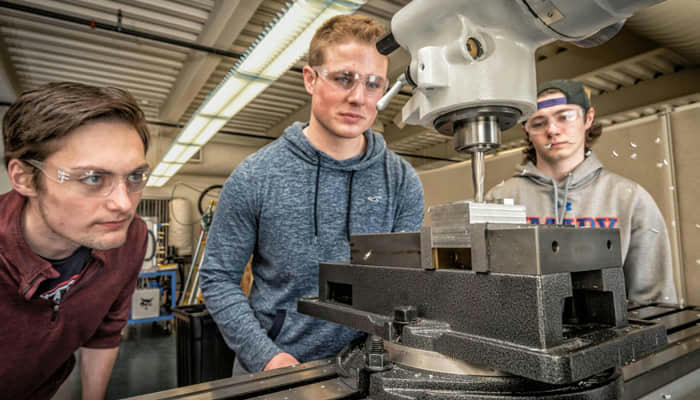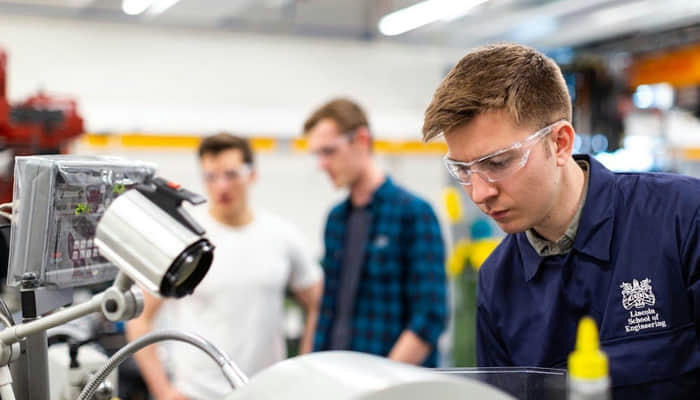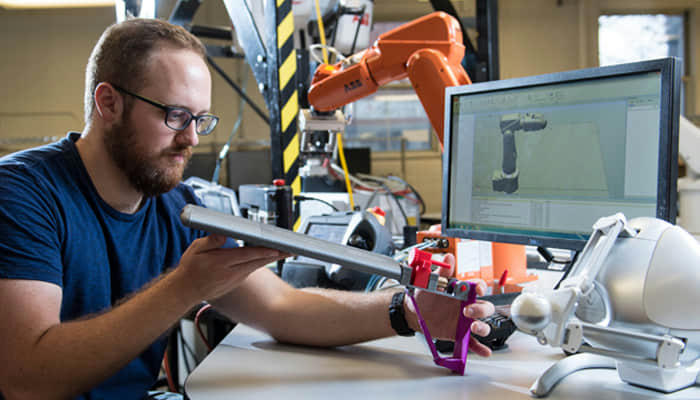Gear Up for Success: Your Guide to Free Mechanical Engineering Certificate Courses

Are you a mechanical engineering student eager to expand your knowledge and sharpen your skills beyond your regular coursework? If so, you're in luck! We've put together an extensive list of free certificate courses that can help you enhance your expertise and make you a more attractive candidate in the competitive job market.
These courses span a variety of topics within the field of mechanical engineering, from design and manufacturing to maintenance and management. Let's dive in and explore the incredible opportunities that await you.
Introduction to Mechanical Engineering
For those who are just beginning their journey in the field of mechanical engineering, an introductory course is an excellent starting point. This course provides a comprehensive overview of the fundamental principles that underpin mechanical engineering. Topics covered include the basics of mechanics, thermodynamics, materials science, and more. These foundational concepts are crucial for understanding how forces and energy interact with different materials and structures.
By the end of this course, you'll have a solid grasp of the core concepts that form the foundation of mechanical engineering. This strong base will not only prepare you for advanced studies but also set you up for success in your future career by providing a clear understanding of the principles that guide mechanical design and analysis.

Design for Manufacturing and Assembly
A crucial skill for any mechanical engineer is the ability to design products that are not only functional but also efficient to manufacture and assemble. The "Design for Manufacturing and Assembly" course will teach you how to apply design principles to optimize the production and assembly processes. This optimization helps in reducing costs and saving time.
Additionally, you'll learn about various manufacturing processes and their applications, which will enable you to make well-informed design decisions in your future projects. This course is invaluable for those looking to enhance their design capabilities and streamline production workflows. Topics such as tolerance analysis, material selection, and ergonomic design are also covered, providing a holistic view of the design process from concept to finished product.
Mechanical Vibrations and Structural Dynamics
Understanding the behavior of mechanical systems under vibration and dynamic loading is essential for ensuring the stability and integrity of structures. In the "Mechanical Vibrations and Structural Dynamics" course, you'll delve into the intricacies of how mechanical systems respond to external forces. This knowledge is vital for designing structures that can withstand dynamic stresses and remain stable under various conditions. You'll also explore different techniques for analyzing and mitigating vibrations, which is particularly important in industries like aerospace and automotive where precision and stability are paramount.
Advanced topics such as modal analysis, damping, and frequency response functions are also included, providing a deep understanding of dynamic behavior in mechanical systems.

Project Management for Engineers
Mechanical engineers often find themselves at the helm of complex projects that require robust management skills. The "Project Management for Engineers" course is designed to equip you with the essential tools and knowledge to plan, organize, and execute projects successfully. You'll learn about defining project scope, creating schedules, managing budgets, and identifying and mitigating risks.
Mastering these project management skills will make you a valuable asset to any engineering team, enabling you to lead projects to successful completion. Additionally, you'll explore project management software tools, leadership techniques, and communication strategies that are essential for coordinating with diverse teams and stakeholders, ensuring that projects are delivered on time and within budget.
Quality Control for Mechanical Engineering
In any engineering field, maintaining high standards of quality is crucial to ensuring that products meet customer expectations and adhere to industry standards. The "Quality Control for Mechanical Engineering" course introduces you to a variety of quality control techniques and methodologies used in the industry.
You'll learn about statistical process control, quality management systems, and various methods for testing and inspecting products. This knowledge will help you implement robust quality control measures in your future work, ensuring that your products are reliable and meet stringent quality standards.
You'll also explore Six Sigma methodologies, lean manufacturing principles, and root cause analysis, which are essential tools for continuous improvement and operational excellence.

Advanced Topics and Specialized Courses
Beyond the fundamental and intermediate courses, there are also advanced and specialized courses available for those looking to dive deeper into specific areas of mechanical engineering.
These might include courses on computational fluid dynamics (CFD), finite element analysis (FEA), robotics, or renewable energy systems. Each of these areas offers a unique set of challenges and opportunities, allowing you to tailor your learning experience to your career goals and interests.
For example, a course on CFD will teach you how to simulate fluid flow and heat transfer, providing valuable insights for designing efficient cooling systems or aerodynamic structures. Similarly, an FEA course will enable you to analyze stress and deformation in complex structures, essential for ensuring the safety and reliability of engineered products.
The Importance of Continuous Learning
In the ever-evolving field of mechanical engineering, staying current with the latest technologies and methodologies is crucial. Continuous learning and professional development are essential for maintaining a competitive edge and advancing your career.
Free certificate courses provide an excellent opportunity to stay updated with industry trends and acquire new skills without the financial burden of traditional education. They also offer flexibility, allowing you to learn at your own pace and fit your studies around your existing commitments.
Networking and Professional Growth
Enrolling in online courses also opens up networking opportunities with fellow students and professionals from around the world. Many platforms offer discussion forums, group projects, and peer reviews, enabling you to connect with others in your field. These interactions can lead to valuable professional relationships, mentorship opportunities, and even job offers.
Additionally, completing certificate courses demonstrates your commitment to professional growth and can enhance your resume, making you a more attractive candidate to potential employers.
Summary
By taking advantage of these free certificate courses, you can significantly enrich your learning experience as a mechanical engineering student and improve your prospects in this highly competitive field. These courses provide valuable knowledge and skills that can set you apart from your peers and make you a more attractive candidate to potential employers. So, why wait? Start enrolling in these courses today and take the first step toward advancing your skills and enhancing your career in mechanical engineering. With dedication and effort, you can leverage these educational opportunities to become a more proficient and well-rounded engineer, ready to tackle the challenges of the modern engineering landscape. The journey of learning and growth is continuous, and these courses are a stepping stone towards achieving your professional aspirations and contributing meaningfully to the field of mechanical engineering.
